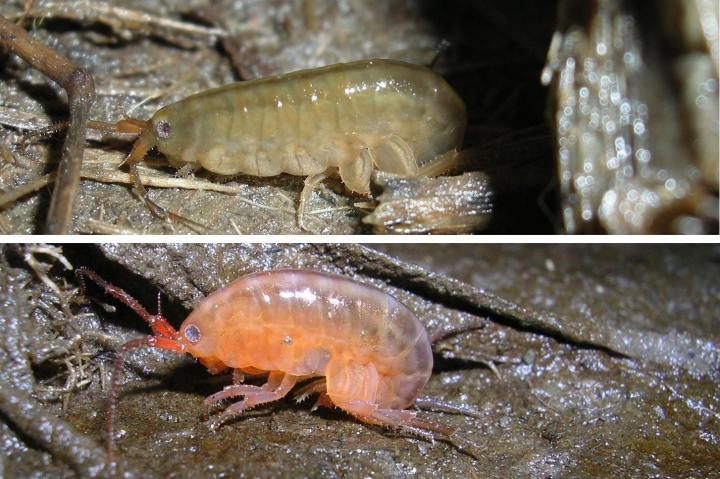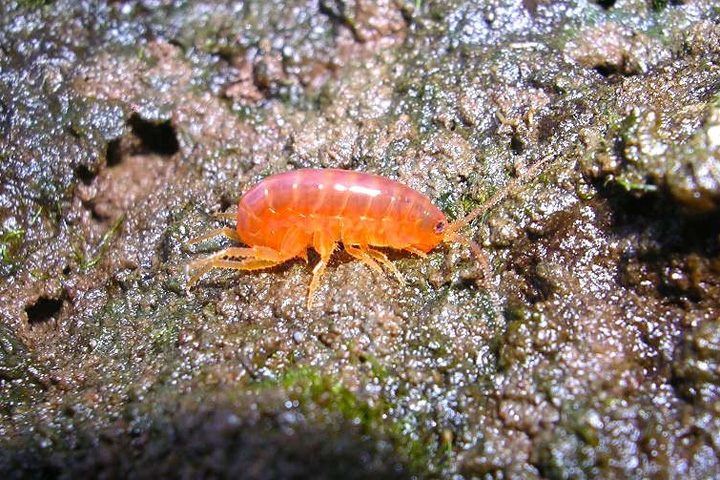There Are Parasites That Turn Marsh-Dwelling Shrimp Into Orange Zombies
And nitrogen pollution can make the infections even more common.
If you’re a small, brown, marsh-dwelling amphipod, it’s in your best interest to stay hidden among the marsh grasses to avoid being snatched up by a bird. But for some less fortunate amphipods, which can be described as “small, hopping shrimp” and are sometimes called marsh hoppers, a parasite has other ideas. Amphipods infected by a tiny, flatworm-like parasite turn a bright orange and rather than take cover in grass, they lounge out in the open at low tide. Researchers have been tracking these pumpkin-colored amphipods in a salt marsh in Massachusetts, and found that nutrient pollution, from excess nitrogen, can cause a boom in parasite populations.
The parasite, Levinseniella byrdi, has a lifecycle that relies on multiple hosts, including birds and amphipods. And its effects on amphipods aren’t accidental. “To reproduce, it needs to get into the gut of a bird,” explained David Johnson, coauthor of a study on the amphipods, in a statement. “To get into the gut of the bird, it turns the amphipod into a suicidal neon sign that screams ‘Eat me!’” These lazy, bright orange amphipods then become easy targets for predatory birds.

The salt marsh where scientists tracked the orange amphipods is home to a long-running experiment on nutrient pollution. Scientists have been applying nitrogen to patches of the marsh since 2004, mimicking the excess nitrogen that ends up in waterways polluted by agricultural runoff. That excess nitrogen can cause algae blooms and, based on this study, also lead to a rise in parasite populations. In plots with extra nitrogen, the parasite population was 13 times the size of control plot populations. The researcher say this is evidence that what happens at the bottom of the food chain can affect species further up, including humans. This parasite affects little shrimp, but nutrient pollution could also boost the populations of parasites that prefer humans as hosts.
























Follow us on Twitter to get the latest on the world's hidden wonders.
Like us on Facebook to get the latest on the world's hidden wonders.
Follow us on Twitter Like us on Facebook